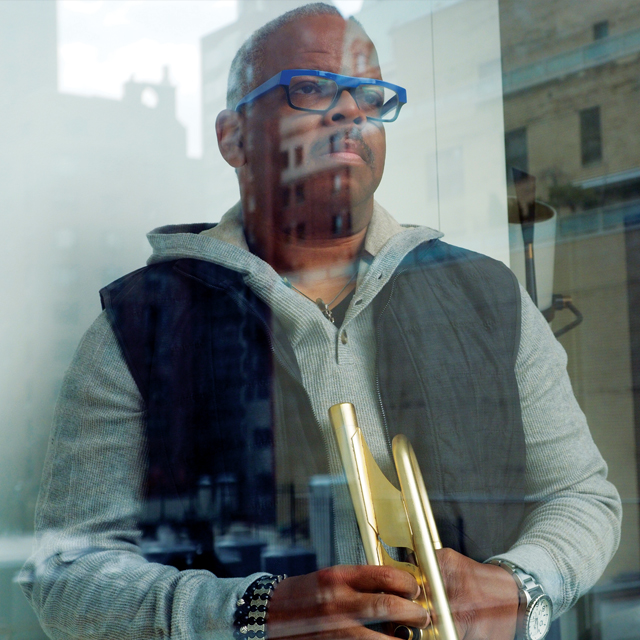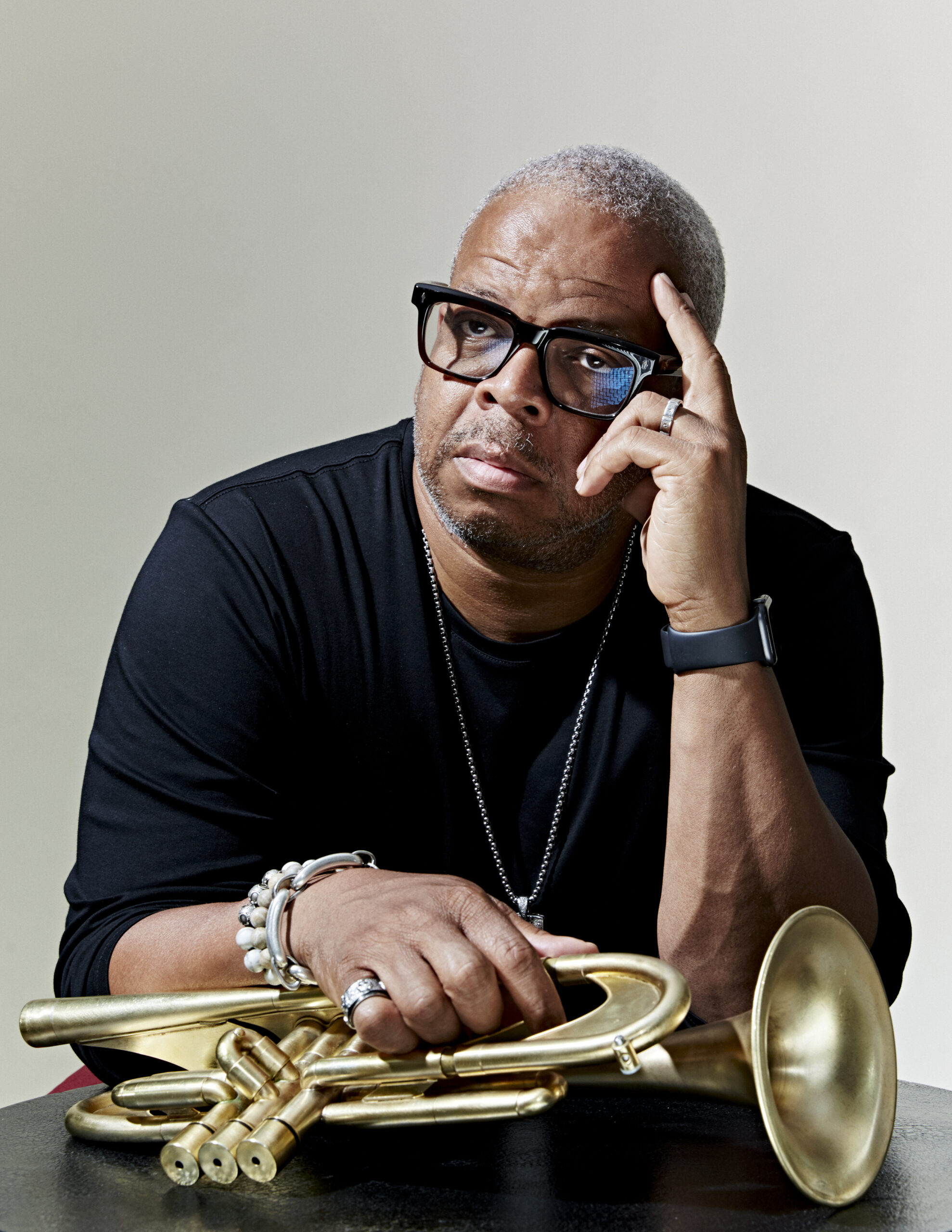Seven-time Grammy Winner
Two-time Oscar nominee
Terence Blanchard

The composer and renowned trumpet player has been a consistent artistic force for making powerful musical statements concerning painful American tragedies – past and present.
Terence is unique in the jazz world as an artist whose creative endeavors go far beyond the genre into film scoring, crafting television series soundscapes and conceiving grand operas that have been recognized at the highest levels of art appreciation. In addition, Blanchard has been at the forefront of giving voice in his works to socio-cultural issues and racial injustices of our time. “Like anybody else, I like to play feel-good party music, but sometimes my music is about the reality of where we are,” says Blanchard who today lives in Los Angeles as well as in his native New Orleans. “I’m just trying to speak the truth.”
Blanchard’s truth flourished in 2021 which has been a banner year for him. He was nominated for an Oscar for his film score writing and arranging Spike Lee’s Da 5 Bloods, marking his second Academy Awards nomination. He also collaborated with Lee on composing the music for the director’s eight-hour series on the aftermath of 9/11 on HBO NYC Epicenters 9/11-20211/2. Plus, he scored Regina King’s feature directorial debut, One Night in Miami. And upcoming film projects include Father of the Bride starring Andy Garcia and Gloria Estefan, directed by Gary Alazraki and The Woman King starring Viola Davis and directed by Gina Prince Bythewood.

Perhaps Blanchard’s most challenging and fulfilling endeavor has been his entry into the world of opera. His second “opera in jazz,”
Fire Shut Up in My Bones, based on the best-selling 2014 memoir of The New York Times journalist Charles M. Blow, with the libretto written by Kasi Lemmons, Fire Shut Up in My Bones explores Blow’s struggles to transcend and overcome a cycle of violence. The orchestration is conducted by Yannick Nézet-Séguin, and stars Angel Blue, Latonia Moore, and Will Liverman and opened New York’s Metropolitan Opera House 2021-2022 season—the first time a project by an African American composer graced the Met’s stage in its 136-year history. “There’s nothing like it,” Blanchard says. “It’s the greatest form of musical theatre that I’ve ever experienced. And to open the Met’s season is very special. I wish my father could see it. He’s looking down and saying, ’I told you so.’” Blanchard’s first piece, Champion, premiered at the Opera Theatre of Saint Louis in 2013. In his soulful score Blanchard captures the life and struggles in the early ‘60s of African American welterweight champion Emile Griffith from St. Thomas as he deals with a tragedy in his career as well as his bisexuality. The libretto was by Pulitzer Prize-winner Michael Cristofer. Champion will premiere at the Metropolitan Opera in April of 2023 with a larger production and score. “I do love opera,” says Blanchard. “My father was an amateur baritone who was always singing. I heard opera music every day in my house as a kid. I would listen to La Bohème and hear how Puccini wrote melodic lines. I’ve been trying to find that in my own life—to bring the culture of jazz into opera. With my works, I’m attempting to have African American voices that come from the church to bring the music into a personal level.” Blanchard’s renown as an educator continued to be recognized in his 2019 high-profile position as the Kenny Burrell Chair in Jazz Studies at the UCLA Herb Alpert School of Music after serving as artistic director of The Berklee College of Music (2015-2018), the Henry Mancini Institute at the University of Miami (2011-2014) and The Thelonious Monk Institute of Jazz (2000-2011).

